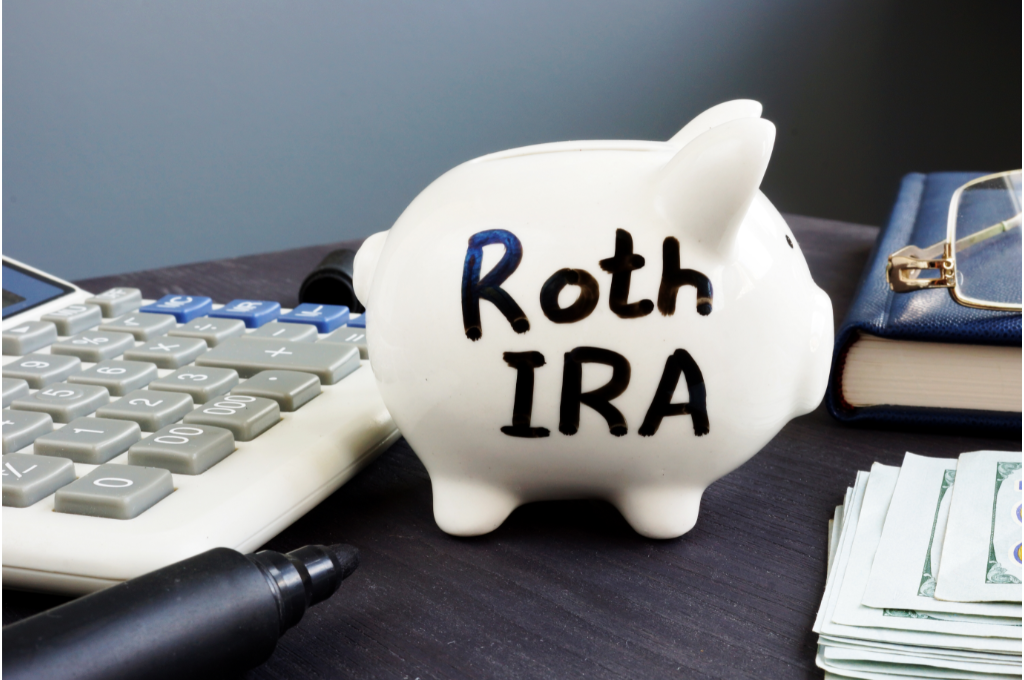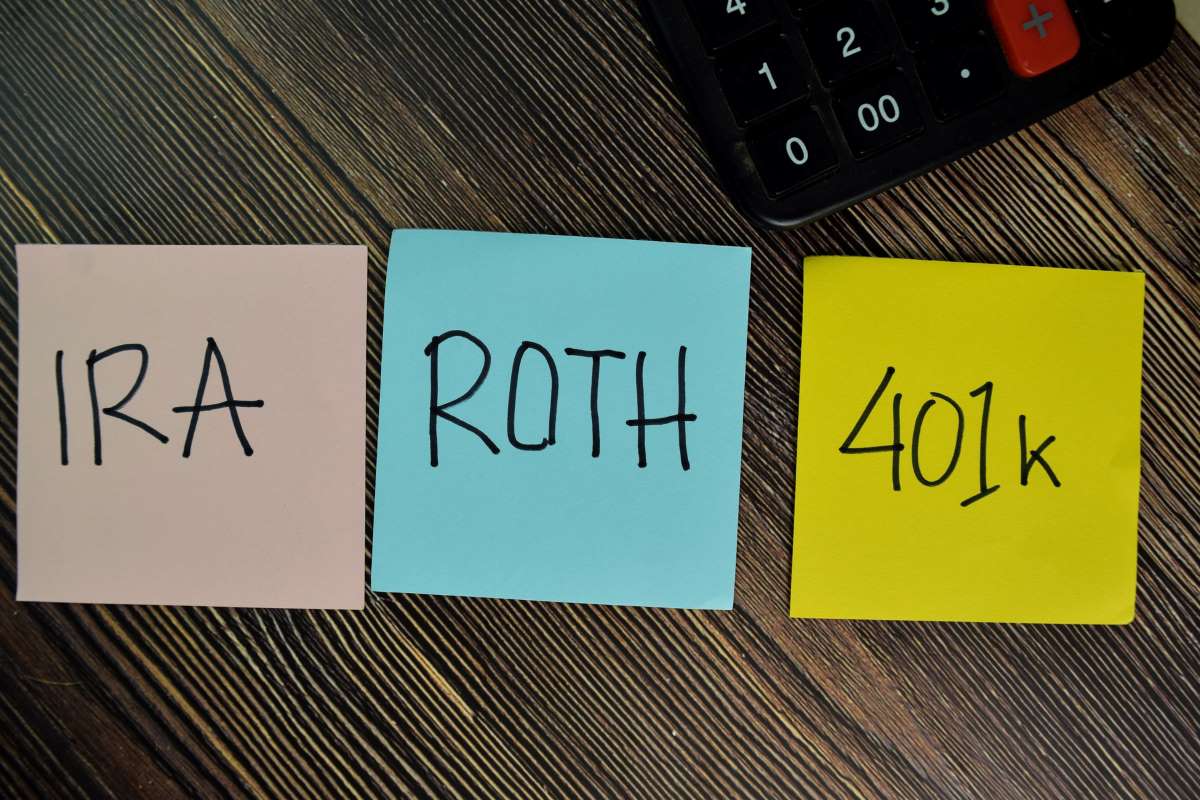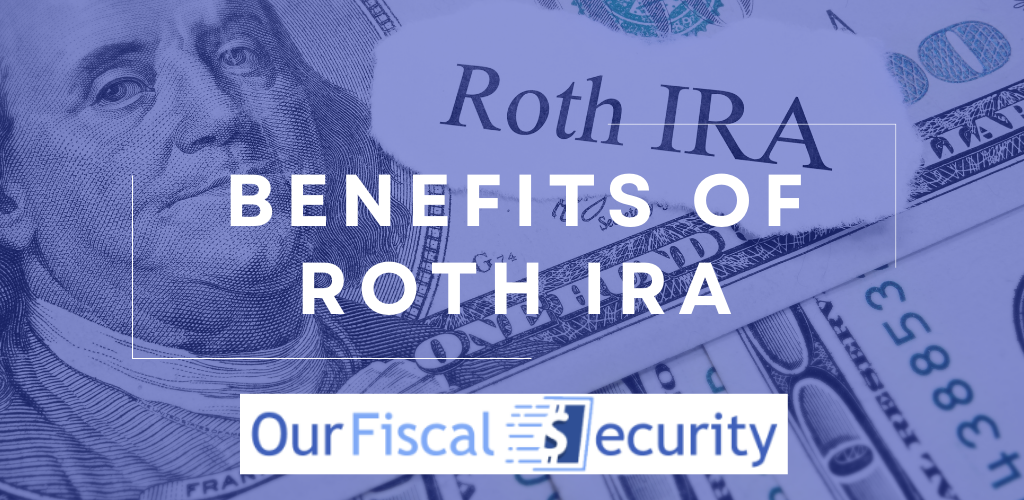Benefits of Roth IRA
Roth IRAs offer many benefits to people preparing for retirement, including tax-free withdrawals.
You may be wondering whether you should go for Roth IRA contributions or traditional ones. Even though both are similar, a few key differences may make one option more appealing to you.
What are the benefits of Roth IRA? This page reviews everything you should know about these accounts, including which benefits you get from them and the risks you should be aware of.
Understanding the Roth IRA
Definition and Purpose of a Roth IRA
A Roth IRA is an Individual Retirement Account. It allows you to pay taxes when you contribute so that your funds can be withdrawn tax-free upon retirement.
The Role of a Roth IRA in Retirement Planning
Roth IRAs offer many benefits when planning your retirement. Unlike a Roth 401(k), which is an employer-sponsored program, you have access to different assets.
Your money grows tax-free, which is excellent news if you think you’ll be in a higher tax bracket when you’re 59½ or older.
Of course, Roth accounts themselves won’t give you benefits. You must be careful with your investments. Also, remember you must be willing to sacrifice the tax deduction you get when making contributions to a traditional IRA.
The Mechanics of a Roth IRA
Contribution to a Roth IRA
Roth IRA contribution limits consist of the following rules:
According to the IRS, you can contribute up to $7,000 every year (or $8,000 if you’re over 50 years old). These are the Roth IRA income limits for 2024, and they may change for later years.
You can make your yearly contributions up until your tax return filing deadline. This deadline doesn’t include extensions.
Growth and Withdrawal of a Roth IRA
The simplest way to begin understanding Roth IRA growth is that all earnings your investment makes will be added to your account balance. This means your additional income will also grow tax-free.
When talking about Roth IRA withdrawals, you should consider that there aren’t Required Minimum Distributions (RMDs). This means you can hold your money as much as you want.
Tax Implications of a Roth IRA
As long as you make a qualified distribution, your funds will not be taxable. If you make your withdrawal before reaching 59½ years of age, you may have to pay a 10% penalty plus income taxes.
The Benefits of a Roth IRA
Let’s look at the different advantages you get from Roth IRAs.
Tax Advantages of a Roth IRA
Tax-Free Growth and Withdrawals
There are no deductions for your taxable income with a Roth IRA. However, this means you won’t have to worry about reporting your investment earnings, as they will grow with the rest of your balance.
Moreover, you can start making tax-free withdrawals once you reach 59½ years of age and have had the account open for at least five years.
In other words, if you take a lump-sum withdrawal, you’ll get everything without having to pay income tax.
Post-Tax Contributions and Tax Bracket Considerations
Roth IRAs are recommended for those who think they’ll be in a higher tax bracket when they retire. This is because you’ll pay taxes each time you contribute, which will “technically” be less money than you would have paid when withdrawing.

Flexibility in Withdrawals
Penalty-Free Early Withdrawals
If you’re eligible, you can make penalty-free early withdrawals. This only applies if you’ve owned the account for over five years.
No Required Minimum Distributions
As mentioned, Roth IRAs don’t ask for RMDs, which means you can hold your money in the account for as long as you want.
Estate Planning Benefits
Tax-Free Inheritance for Beneficiaries
Roth IRAs offer many legacy benefits. Although your heirs will have to take RMDs, withdrawals will still be tax-free.
Eligibility and Investment Options
Income Eligibility for a Roth IRA
Eligibility depends on how you’re filing taxes. If you’re filing as a single person, your Modified Adjusted Gross Income should be $161,000 for the 2024 tax year if you want to contribute to an IRA. The amount goes up to $240,000 if you’re filing jointly.
Diverse Investment Options within a Roth IRA
Roth IRAs offer different investment options, which can help you diversify your portfolio and avoid risks. Some of these investments include:
- Target-date funds
- Small-cap stock funds
- REIT funds
- Value stock funds
- And more
Comparing Roth IRA to Other Retirement Accounts
Before we go further with comparison analysis, we have a detailed guide about Individual retirement Account, where we present a broader view on IRAs.
Roth IRA vs. Traditional IRA
When comparing Roth and traditional IRAs it is clear that they are very similar, so let’s look at the key differences:
Tax Benefits Comparison
Roth IRAs work with after-tax dollars, whereas traditional ones are funded with pre-tax dollars. In other words, your money will grow tax-free with a Roth IRA, which won’t happen with the traditional one.
Withdrawal Rules Comparison
When comparing IRA withdrawal procedures, you can start making Roth IRA withdrawals as long as you reach 59½ years of age and have held the account for over five years. The former rule doesn’t apply to traditional IRAs, but you’ll still get penalized if you make withdrawals before reaching 59½ years of age.
With a traditional IRA, your withdrawals are taxed as current income, which isn’t the case with a Roth IRA.
Roth IRA vs. 401(k)
The easiest way to differentiate IRA and 401k is that a 401(k) is an employer-sponsored retirement plan, whereas the IRA isn’t. Let’s look at how they work:
Contribution Limits Comparison
Roth IRAs have an annual contribution limit of $7,000 or $8,000 if you’re over 50. With a 401(k), however, you can contribute up to $23,000, which is a significantly higher amount.
Tax Advantages Comparison
401(k)s are funded with pre-tax dollars, meaning you’ll owe less income taxes each time you contribute. However, you’ll have to pay taxes when you make your withdrawals. Roth IRAs, on the other hand, ask for after-tax money, which means you can make tax-free withdrawals.

Practical Considerations for a Roth IRA
Future Tax Bracket Considerations
It’s crucial to think about your tax bracket when opening a Roth IRA. Here’s an overview of why that is:
Impact of Future Tax Brackets on Roth IRA Benefits
You’ll get the most Roth IRA benefits if you consider your future tax bracket. If you think you’ll be in a higher one, this means that it’s worth it to pay income taxes when contributing. Overall, you’d save more money than if you were to make pre-tax contributions. Those who think they’ll be in a lower tax bracket when they retire may not want to open a Roth IRA.
Roth IRA’s Cost-Effectiveness
Analyzing Roth IRA’s Cost-Effectiveness Based on Tax Circumstances
You can see the Roth IRA as a cost-effective solution when planning your retirement. If you have specific tax circumstances (like the ones mentioned above), it will be better to pay taxes when contributing instead of later. If you’re not sure of how your tax circumstances could change, you could seek help from a professional advisor.
Roth IRA and Early Retirement Planning
Impact of Early Withdrawals on Retirement Savings
Even though you can make early withdrawals without penalties in some cases, that doesn’t mean you should. If your goal is to protect your retirement savings, the best thing you can do is to let your money grow for as long as possible. Remember your money will grow tax-free, meaning you will be able to enjoy all of your funds without having to worry about anything else.
Of course, make sure you’re not breaking any rules before making a withdrawal. If you withdraw before you’re 59½ or before your account is five years old, you’ll be exposed to a 10% penalty plus income taxes.
Frequently Asked Questions
What Are the Eligibility Requirements for a Roth IRA?
Technically, everyone with eligible income can open a Roth IRA. Your contributions will depend on your Modified Adjusted Gross Income (MAGI) and your tax filing status. Contribution limits for 2024 are $7,000 or $8,000 if you’re over 50.
How Does a Roth IRA Grow Over Time?
It gives you profits through compounding growth. When your investment earns dividends or interest, the amount will be added to your balance and keep growing over time.
What Are the Consequences of Early Withdrawals from a Roth IRA?
You could owe a 10% penalty on the amount you took out. Some people may also have to pay income taxes.
Can I Contribute to Both a Roth IRA and a 401(k)?
Yes, you can contribute to both retirement accounts simultaneously.
What Is a “Backdoor Roth IRA” Conversion?
It’s a conversion type that allows “high earners” to open a Roth IRA. Essentially, they put tax-free money into a traditional IRA and then convert that contribution into a Roth IRA.
Conclusion
An Individual Retirement Account brings the peace of mind you didn’t know you needed. Roth IRAs are known for offering different benefits compared to traditional ones, such as being able to contribute after-tax dollars.
Which option works best? It depends on what you’re looking for. If you think you’ll be in a higher tax bracket after retiring, a Roth IRA will be the best option.
Other than that, make sure to review everything we mentioned above, and you’ll surely make the right decision.







